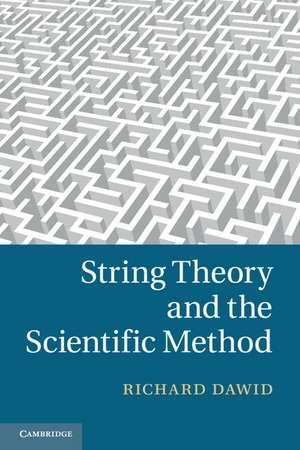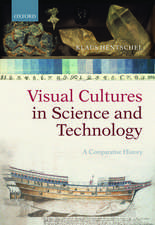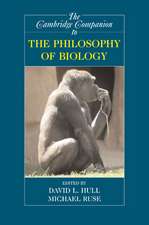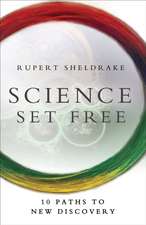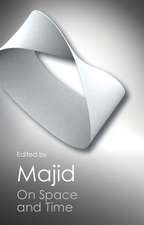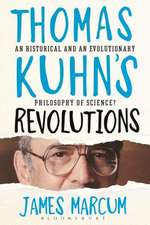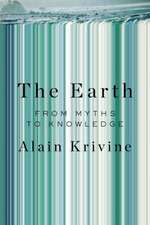String Theory and the Scientific Method
Autor Richard Dawiden Limba Engleză Paperback – 21 dec 2014
| Toate formatele și edițiile | Preț | Express |
|---|---|---|
| Paperback (1) | 315.38 lei 6-8 săpt. | |
| Cambridge University Press – 21 dec 2014 | 315.38 lei 6-8 săpt. | |
| Hardback (1) | 884.91 lei 6-8 săpt. | |
| Cambridge University Press – mai 2013 | 884.91 lei 6-8 săpt. |
Preț: 315.38 lei
Nou
Puncte Express: 473
Preț estimativ în valută:
60.36€ • 62.21$ • 50.96£
60.36€ • 62.21$ • 50.96£
Carte tipărită la comandă
Livrare economică 03-17 martie
Preluare comenzi: 021 569.72.76
Specificații
ISBN-13: 9781107449619
ISBN-10: 1107449618
Pagini: 212
Ilustrații: 5 b/w illus.
Dimensiuni: 152 x 228 x 10 mm
Greutate: 0.36 kg
Editura: Cambridge University Press
Colecția Cambridge University Press
Locul publicării:New York, United States
ISBN-10: 1107449618
Pagini: 212
Ilustrații: 5 b/w illus.
Dimensiuni: 152 x 228 x 10 mm
Greutate: 0.36 kg
Editura: Cambridge University Press
Colecția Cambridge University Press
Locul publicării:New York, United States
Cuprins
Introduction; Part I. Delimiting the Unconceived: 1. String theory; 2. The conceptual framework; 3. The assessment of scientific underdetermination in string theory; Part II. A Wider Perspective: 4. The dynamics of high energy physics; 5. Scientific underdetermination in physics and beyond; Part III. Physics and Truth: 6. Final theory claims; 7. An altered perspective on scientific realism; References; Index.
Recenzii
'At the frontiers of physics and cosmology theoretical speculation proceeds without the constant confrontation with experiment often thought to be required for scientific validation. Richard Dawid explores this issue in the case of string theory. He offers a fascinating new perspective on non-empirical theory assessment, based on the concept of scientific underdetermination. I heartedly recommend this book to both physicists and philosophers.' David Gross, Kavli Institute for Theoretical Physics, and Nobel Laureate in Physics, 2004
'Richard Dawid argues that string theory plays a novel role in the scientific process that has been neglected by philosophers of science. I believe that this book is a valuable contribution to the philosophy of science, which should interest practicing scientists as well as those who are more interested in the methodology of science.' John Schwarz, California Institute of Technology
'Richard Dawid provides a fascinating account of string theory, then uses it as a starting point to puzzle over exactly what it is that we do or should want from a satisfactory physical theory more generally. The result is a number of compelling philosophical insights into the nature and practice of modern physics.' Jeffrey A. Barrett, University of California, Irvine
'Dawid makes what is probably the best possible case that theoretical justification can succeed. I applaud the fact that String Theory and the Scientific Method explicitly raises these questions and addresses them in a clear and well-considered way.' George Ellis, Science
'String Theory and the Scientific Method is clearly written and well argued, one of the clearest expositions of string theory accessible to a non-physicist that I have read. Though narrowly conceived, and yearning to be informed by a broader philosophical perspective, it is an important contribution to traditional Anglo-American philosophy of science insofar as its initial inspiration is not the urge to develop the logic of science for its own sake, but the mismatch between the inherited picture of that logic and the actual experience of scientists.' Robert P. Crease, History of Physics Newsletter
'I think that Dawid has identified an important, real feature of scientific methodology, neglected by philosophy of science - one that should be taken seriously. I also think that this book provides a plausible framework for thinking about it. To what extent Dawid is right about the way such 'post-empirical' reasoning functions in science is a harder question; even harder is the question of whether it can be justified along the lines he proposes. Obviously he believes he is right, and he argues plausibly to that effect, but the questions are big ones, deserving investigation and debate among a wide readership. I thus commend the book to you, and encourage you to engage the important issues that it raises. If Dawid is correct, then he has opened up a whole new way of thinking about scientific confirmation.' Nick Huggett, Notre Dame Philosophical Reviews
'… explores how the development of string theories over recent decades has changed the way some physicists think about the relation between theory development and empirical evidence … Recommended. Graduate students, researchers/faculty, and professionals.' M. Dickinson, Choice
'The book makes an important contribution to philosophy of science by discussing and arguing for the role that non-empirical theory assessments play in science.' Keizo Matsubara, Metascience
'The book offers a rather difficult reading, being directed especially to philosophers of science. It is dense and well argued, and I would rank it together with the great classics of philosophy of science.' Osvaldo Pessoa, Jr, Science & Education
'Richard Dawid argues that string theory plays a novel role in the scientific process that has been neglected by philosophers of science. I believe that this book is a valuable contribution to the philosophy of science, which should interest practicing scientists as well as those who are more interested in the methodology of science.' John Schwarz, California Institute of Technology
'Richard Dawid provides a fascinating account of string theory, then uses it as a starting point to puzzle over exactly what it is that we do or should want from a satisfactory physical theory more generally. The result is a number of compelling philosophical insights into the nature and practice of modern physics.' Jeffrey A. Barrett, University of California, Irvine
'Dawid makes what is probably the best possible case that theoretical justification can succeed. I applaud the fact that String Theory and the Scientific Method explicitly raises these questions and addresses them in a clear and well-considered way.' George Ellis, Science
'String Theory and the Scientific Method is clearly written and well argued, one of the clearest expositions of string theory accessible to a non-physicist that I have read. Though narrowly conceived, and yearning to be informed by a broader philosophical perspective, it is an important contribution to traditional Anglo-American philosophy of science insofar as its initial inspiration is not the urge to develop the logic of science for its own sake, but the mismatch between the inherited picture of that logic and the actual experience of scientists.' Robert P. Crease, History of Physics Newsletter
'I think that Dawid has identified an important, real feature of scientific methodology, neglected by philosophy of science - one that should be taken seriously. I also think that this book provides a plausible framework for thinking about it. To what extent Dawid is right about the way such 'post-empirical' reasoning functions in science is a harder question; even harder is the question of whether it can be justified along the lines he proposes. Obviously he believes he is right, and he argues plausibly to that effect, but the questions are big ones, deserving investigation and debate among a wide readership. I thus commend the book to you, and encourage you to engage the important issues that it raises. If Dawid is correct, then he has opened up a whole new way of thinking about scientific confirmation.' Nick Huggett, Notre Dame Philosophical Reviews
'… explores how the development of string theories over recent decades has changed the way some physicists think about the relation between theory development and empirical evidence … Recommended. Graduate students, researchers/faculty, and professionals.' M. Dickinson, Choice
'The book makes an important contribution to philosophy of science by discussing and arguing for the role that non-empirical theory assessments play in science.' Keizo Matsubara, Metascience
'The book offers a rather difficult reading, being directed especially to philosophers of science. It is dense and well argued, and I would rank it together with the great classics of philosophy of science.' Osvaldo Pessoa, Jr, Science & Education
Descriere
This book explains why string theorists develop a strong belief in their theory despite the lack of empirical confirmation.
